Fifty Million Trees
In San José de Ocoa, Dominican Republic, ADESJO (Asociación Para El Desarrollo De San José De Ocoa) stands as a symbol of hope and renewal, embodying the vision of Canadian pastor Padre Luis, who founded the organization in 1953. The photographs vividly capture ADESJO's commitment to environmental stewardship and community support, highlighting efforts that restore and preserve the region's natural beauty.
The images collectively portray a resilient community dedicated to sustainable practices and collective effort. Through their work, ADESJO continues to play a pivotal role in revitalizing San José de Ocoa, supporting remote and impoverished areas, and ensuring a sustainable future for the region.
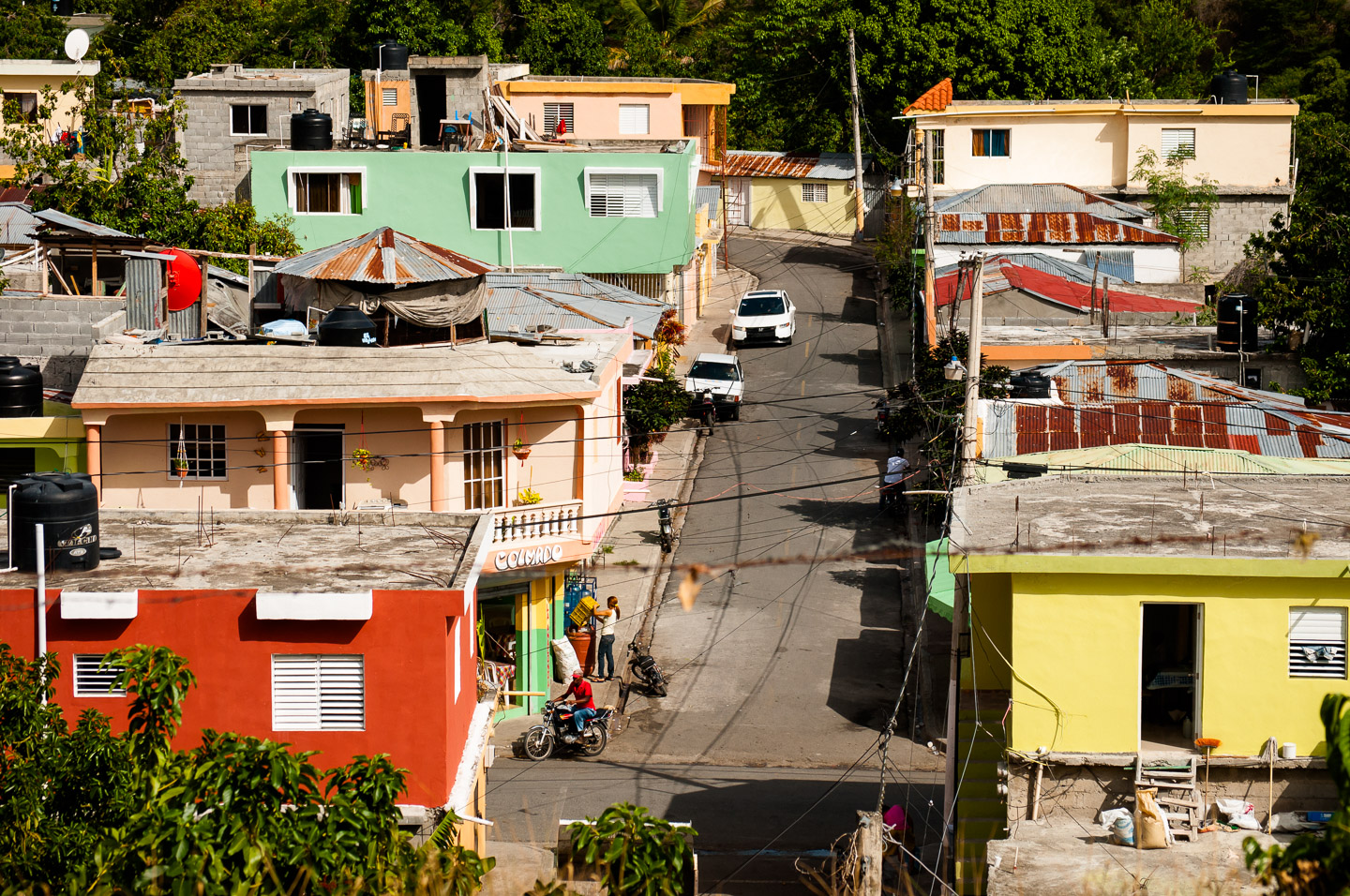
San José De Ocoa, Dominican Republic.
Nestled in the mountains of southern Dominican Republic, San José De Ocoa is home to ADESJO (Asociación Para El Desarrollo De San José De Ocoa), an organization dedicated to the town's and province's development. Founded by Canadian pastor Padre Luis (Louis Joseph Quinn) in 1953, ADESJO reflects his lifelong commitment to the community until his passing in 2007.
July 10, 2014.
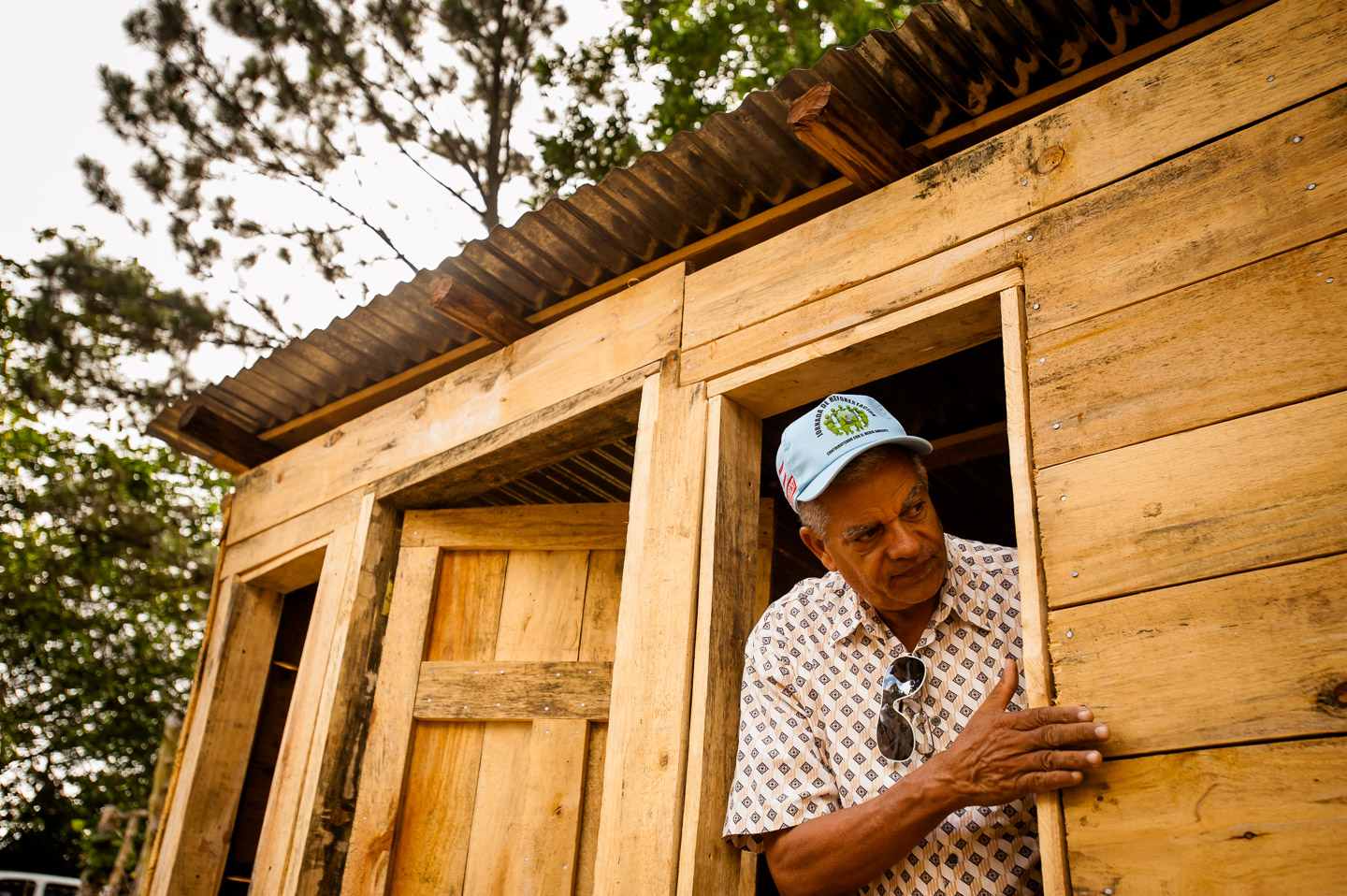
Carlos Bonilla of ADESJO Natural Resources department in Derrumbado, Dominican Republic.
Carlos Bonilla inspects the wood for a new shed, which will serve as an office at the local sustainable lumber yard. With over 25 years at ADESJO, Carlos oversees natural resource projects in San José de Ocoa, including reforestation, irrigation, and soil conservation. Under his guidance, he estimates that more than 50,000,000 trees have been planted in the region.
June 30, 2014.
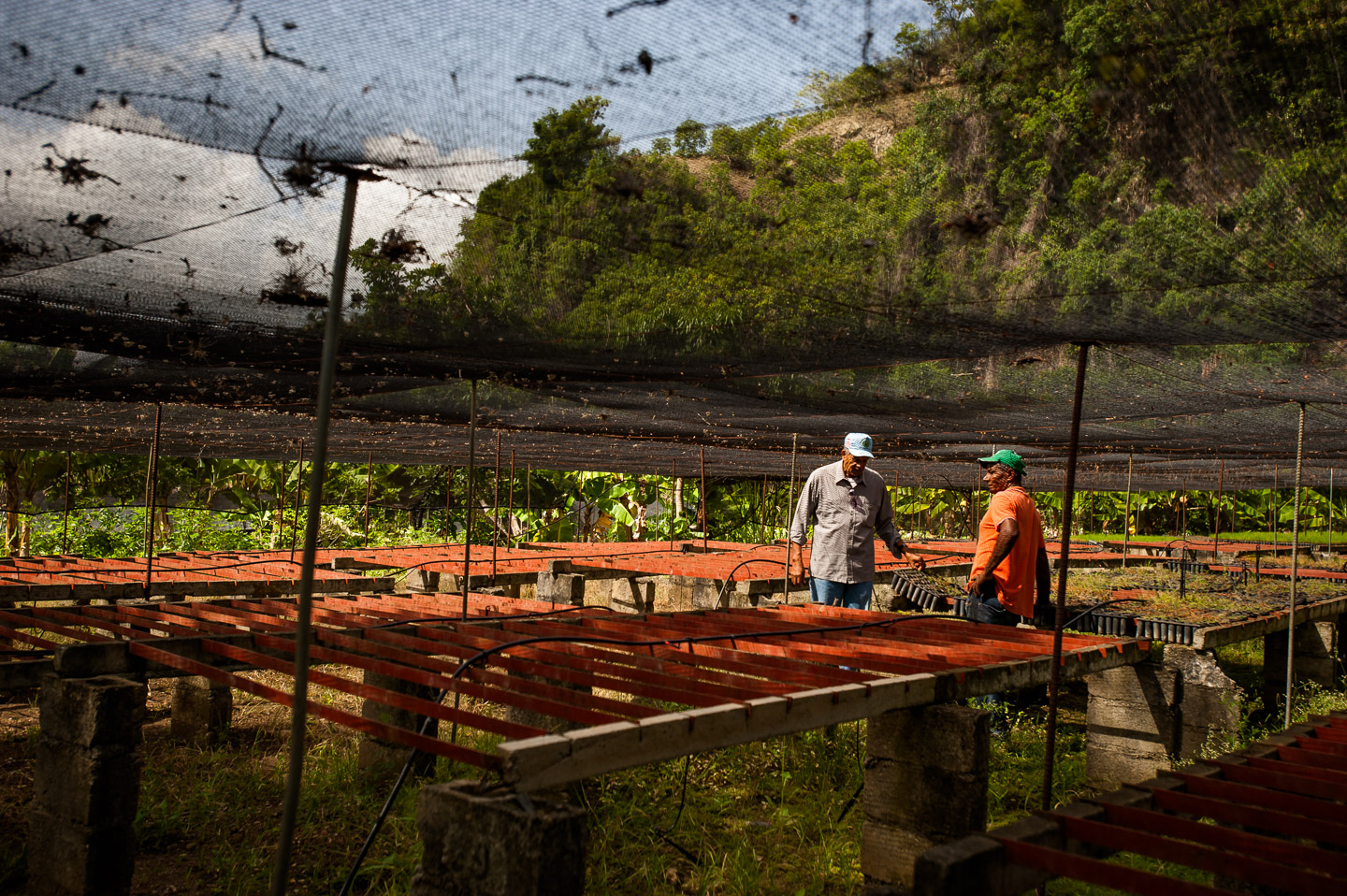
Carlos Bonilla and Juan Bautista Peña examining planters in Rincón Del Pino, Dominican Republic.
Carlos Bonilla from ADESJO's Natural Resources department and Juan Bautista Peña, a reforestation and agriculture specialist, inspect racks of planters growing tiny pine trees. These young trees are the future of reforestation efforts aimed at restoring forests in the hills of San José de Ocoa province.
July 7, 2014.
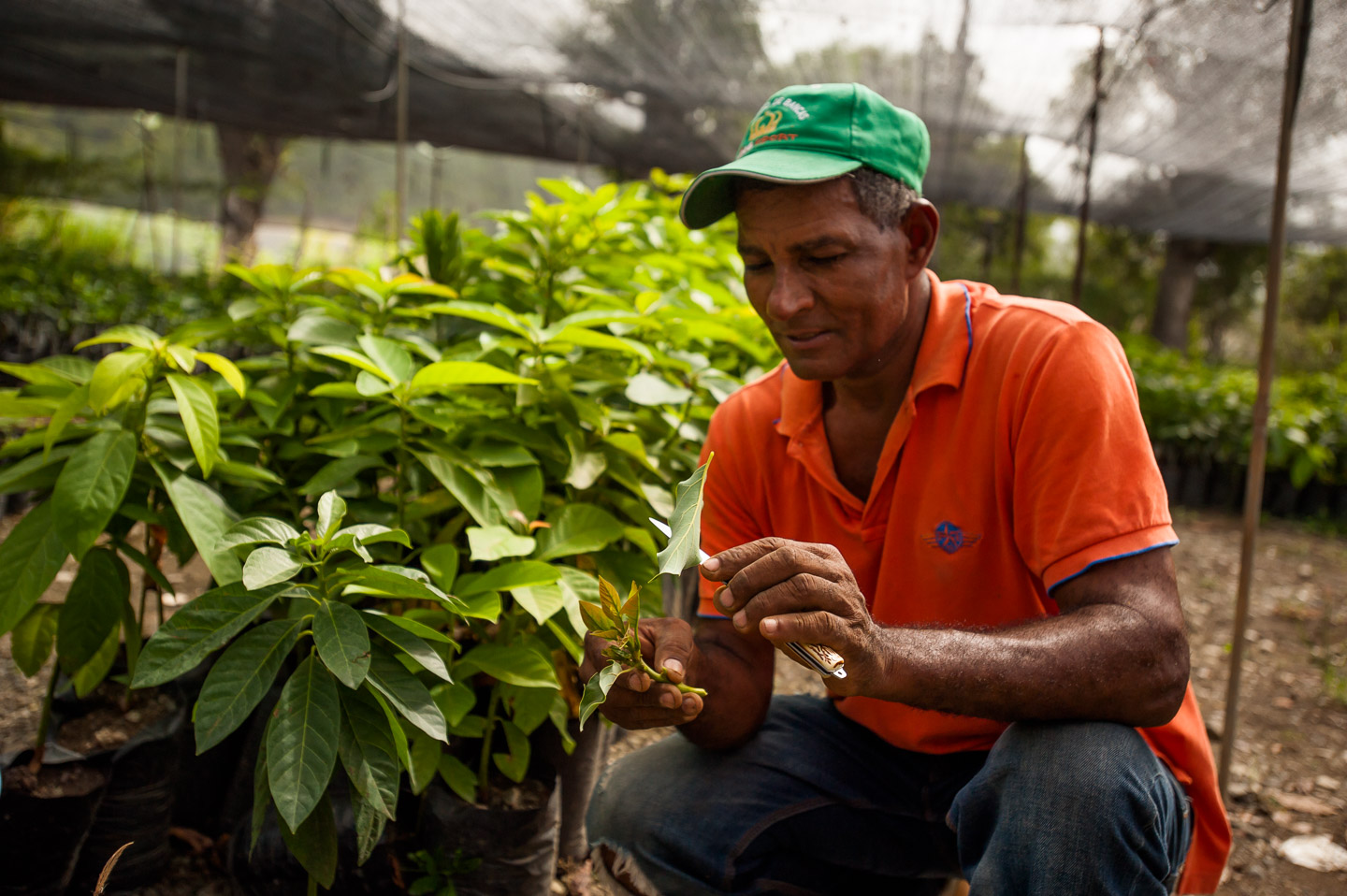
Juan Bautista Peña demonstrating avocado tree splicing, Rincón Del Pino, Dominican Republic.
Juan Bautista Peña, a reforestation and agriculture specialist, demonstrates the splicing technique on an avocado tree. These fruit trees serve a dual purpose: supplying food for local communities and contributing to reforestation efforts. Once mature, the trees will be planted throughout the San José de Ocoa province.
July 7, 2014.
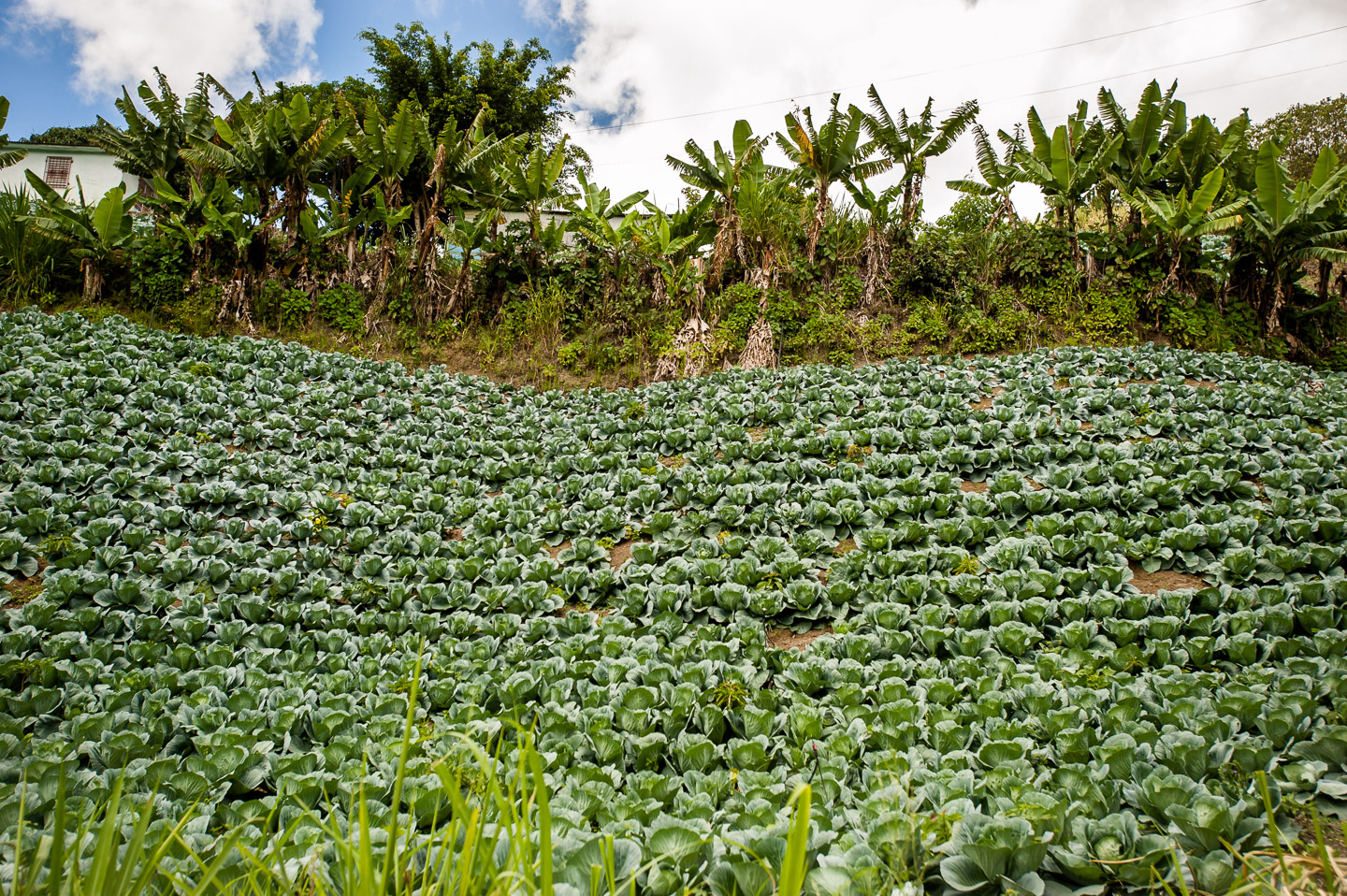
Lettuce heads and young avocado trees in El Rifle, Dominican Republic.
In El Rifle, a village in San José de Ocoa province, lettuce heads conceal young avocado trees planted by ADESJO. As these fruit trees mature, they gradually replace short-cycle plants like lettuce. This project is funded by HOPE International Development Agency, a Canadian non-profit that has supported ADESJO since its inception.
July 9, 2014.
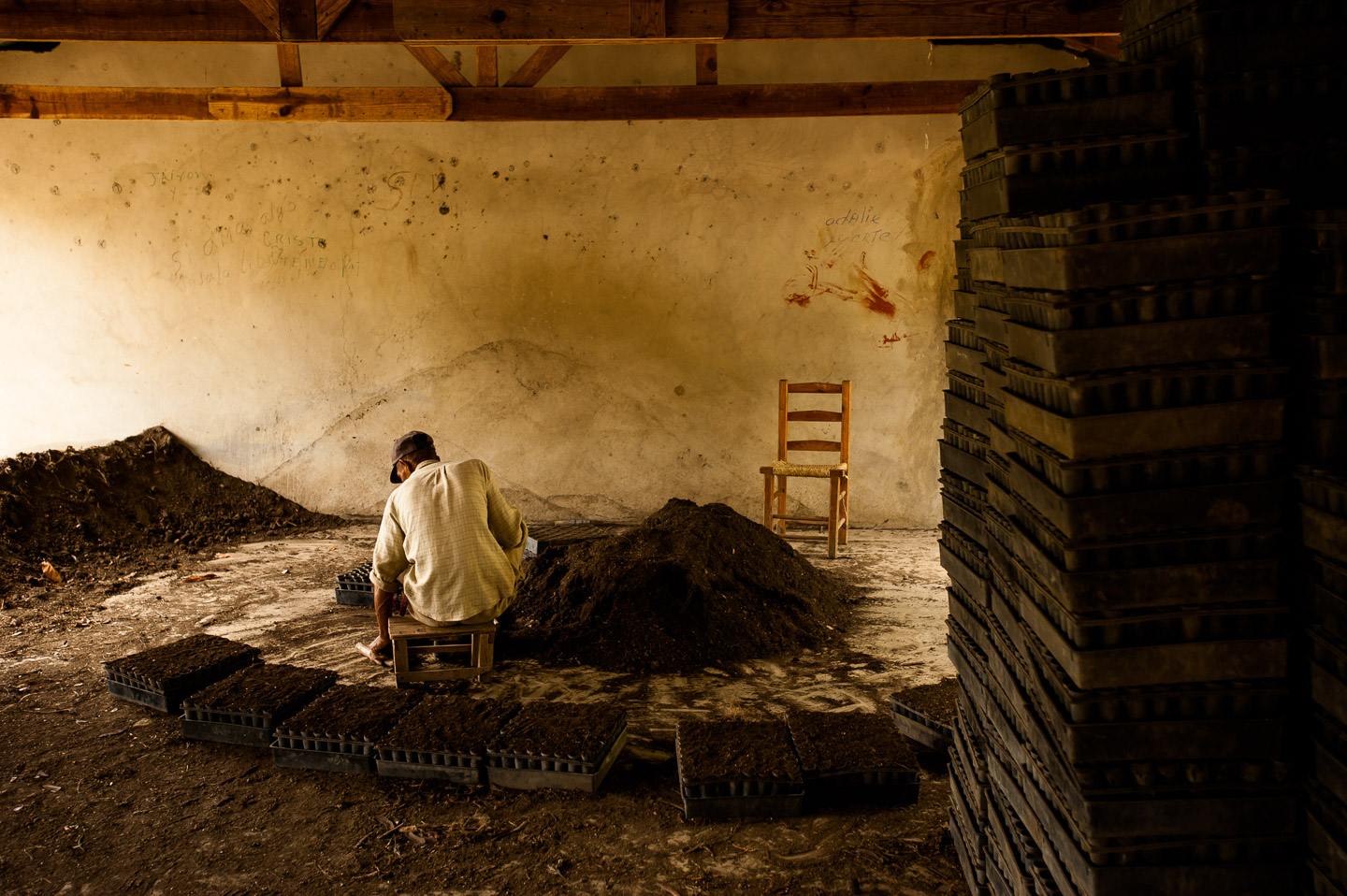
Filling planters with soil mixture, Rincón Del Pino, Dominican Republic.
A worker fills racks of planters by hand with a soil mixture made from organic ingredients, including straw, coffee husks, and recycled soil from ADESJO greenhouse projects. These racks will nurture young pine trees that will eventually be planted to reforest the hills of San José de Ocoa province as part of ADESJO's reforestation efforts.
July 7, 2014.
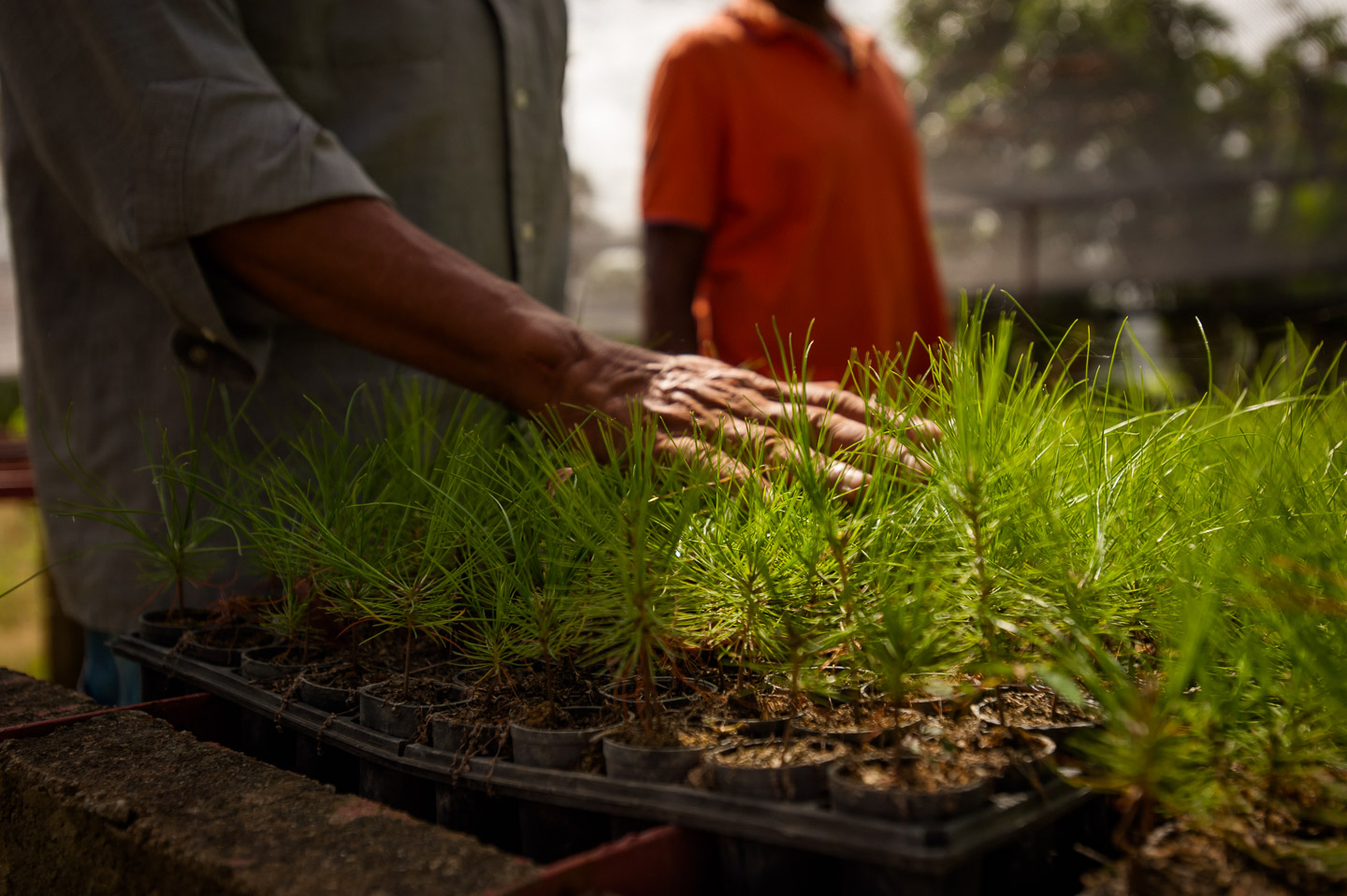
Tiny pine trees in racks of planters, Rincón Del Pino, Dominican Republic.
Hundreds of young pine trees emerge from racks filled with fertile organic soil. Within a few weeks, these trees will grow to 5–7 inches in height and will be transplanted around the San José de Ocoa province by ADESJO for reforestation. This project is carried out in collaboration with the Environment and Natural Resources Ministry of the Dominican Republic.
July 7, 2014.
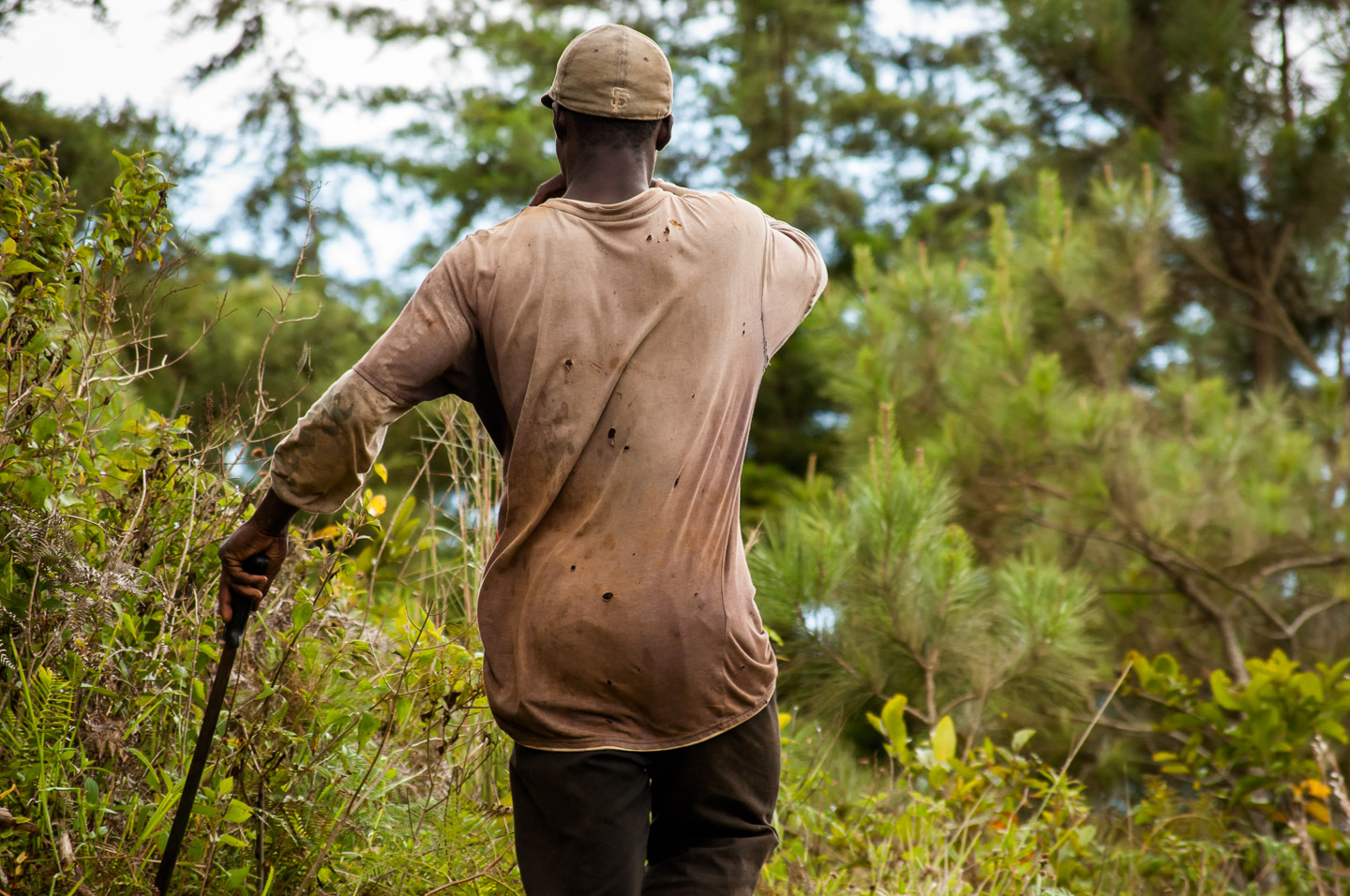
Haitian field worker clearing weeds around young pine trees, near Derrumbado, San José de Ocoa, Dominican Republic.
A Haitian field worker assists community volunteers in removing weeds from around young pine trees planted by ADESJO for reforestation efforts. Haitians make up over 90% of the agricultural workforce in the Dominican Republic, many of whom live in the country without legal documentation, striving to support their families in Haiti.
July 10, 2014.
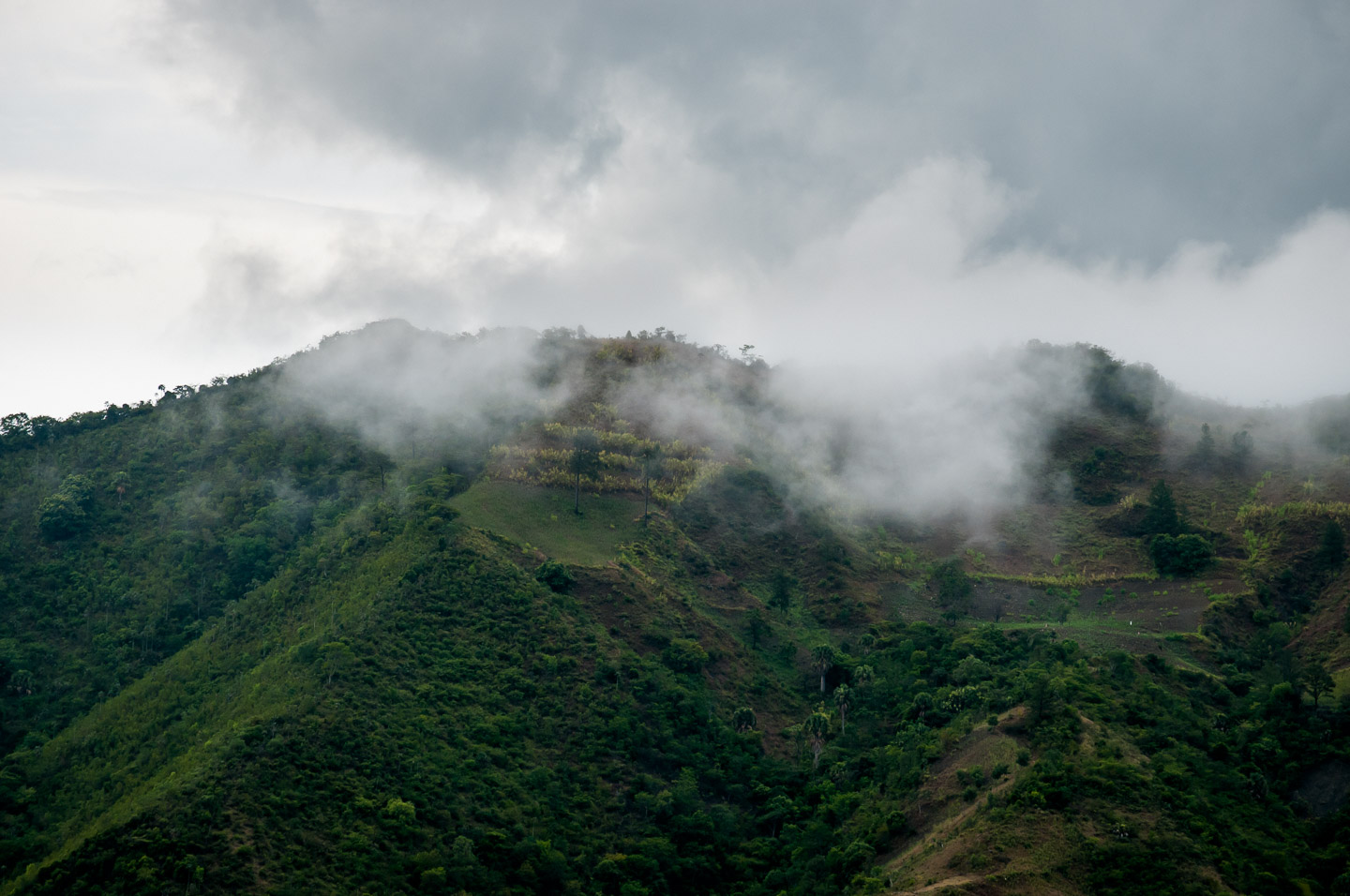
Foggy mountain top near Los Guanos, San José de Ocoa, Dominican Republic.
A misty mountain top reveals one of the many restored forests in San José de Ocoa, thanks to ADESJO's efforts. Three decades ago, the hills here were mostly treeless and dry. Today, the province is among the greenest in the Dominican Republic. Planting just 1 hectare of trees now promotes natural reforestation across 30 hectares, as rejuvenated water springs transform the area into a lush forest.
July 1, 2014.
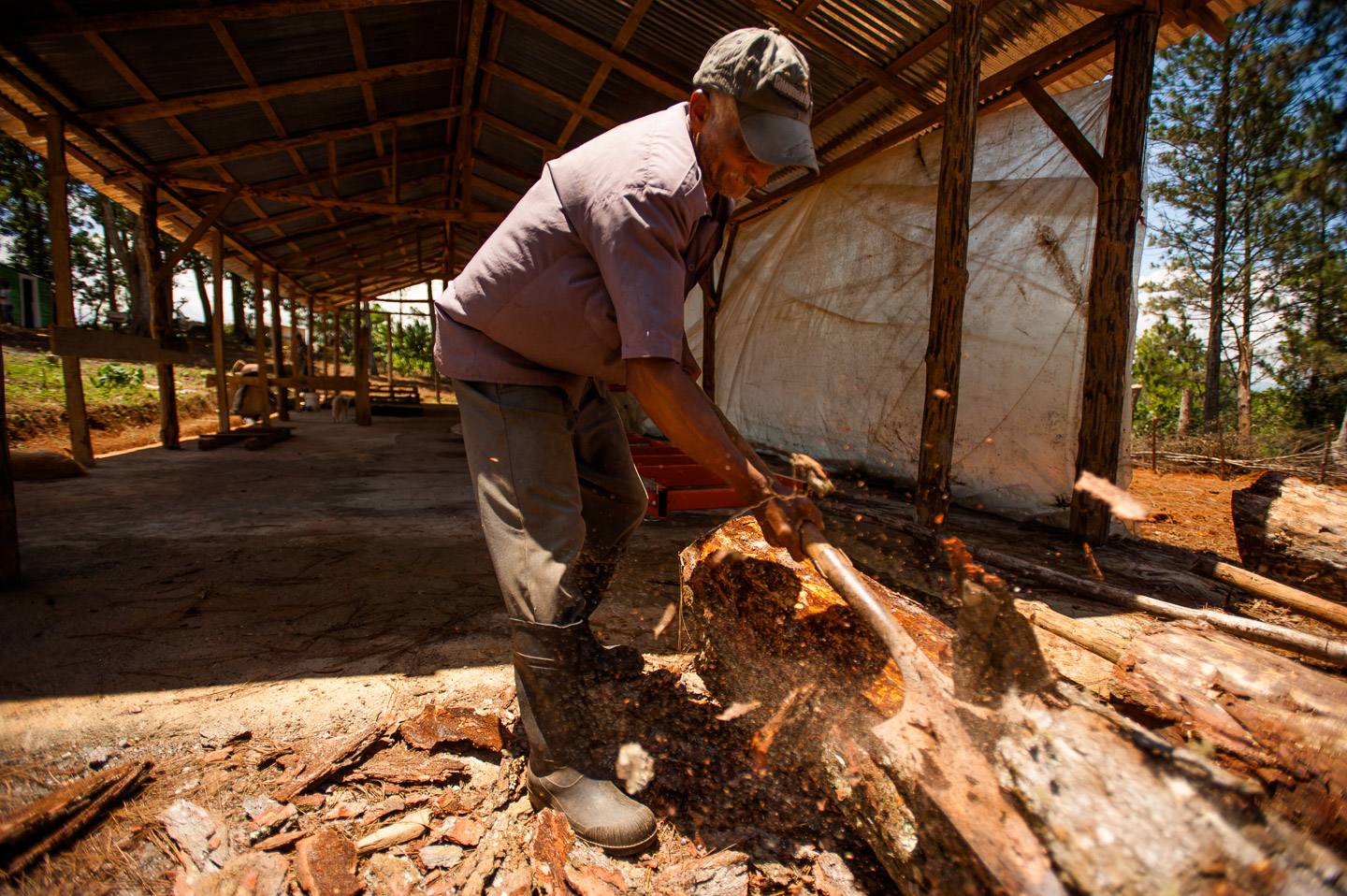
Miguel Bertrez clearing bark from a pine log at a sustainable lumber yard, Derrumbado, San José de Ocoa, Dominican Republic.
Miguel Bertrez, a member of the Derrumbado community, uses a shovel to clear bark from a pine log at ADESJO's sustainable lumber yard project. The Food and Agriculture Organization of the United Nations (FAO) provided over 2,500,000 pesos in equipment and training for this project. Proceeds from the lumber yard will benefit the local community, with 20% of earnings supporting community members and discounted wood available for purchase. The yard is anticipated to produce more than 270,000 feet of wood annually, meeting significant local demand.
July 10, 2014.
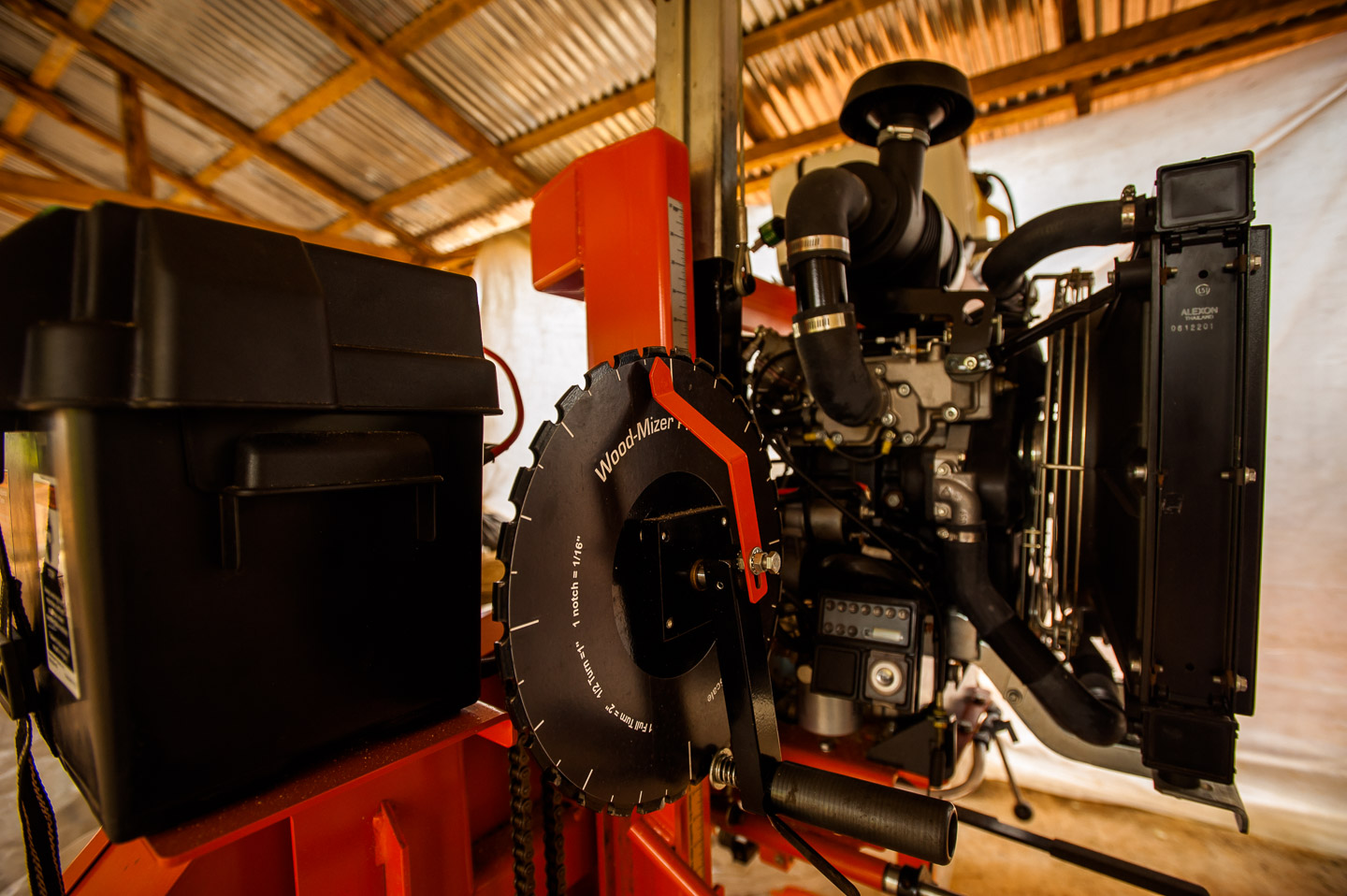
Wood cutting machinery provided by FAO to ADESJO and the community of Derrumbado, San José de Ocoa, Dominican Republic.
The Food and Agriculture Organization of the United Nations (FAO) granted this wood cutting machinery to ADESJO and the Derrumbado community for their sustainable lumber production facility. This project will benefit many in the community and across the province. ADESJO plans to use a portion of the lumber for housing projects in over 80 communities, significantly reducing the costs associated with importing wood from other regions.
July 10, 2014.
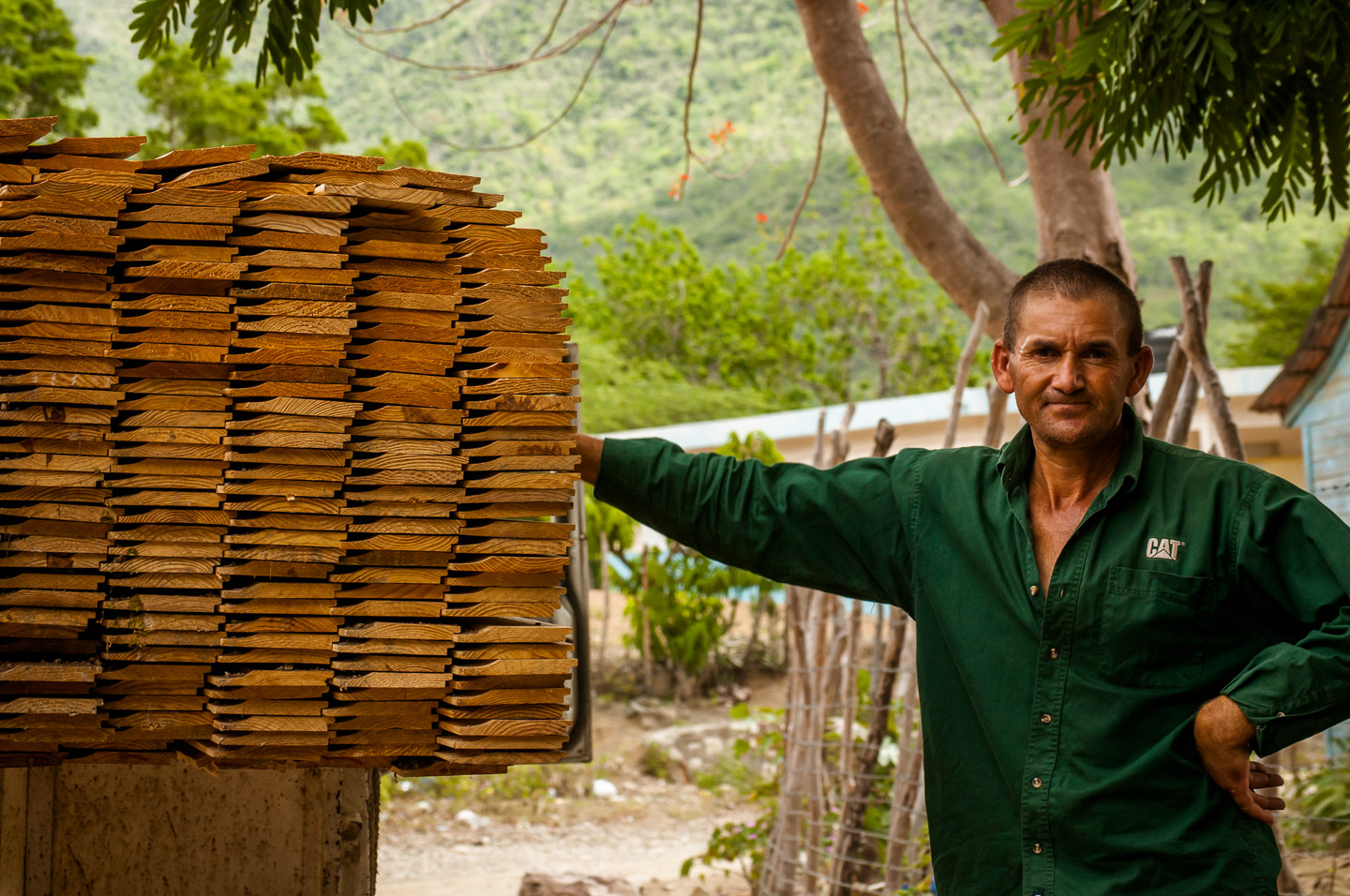
Community member of La China with truckload of wood for housing construction, San José de Ocoa, Dominican Republic.
A resident of La China stands proudly beside a truck filled with wood destined for housing construction for those in need. For over five decades, ADESJO has built homes for thousands of families, assisting communities that are too remote or impoverished to manage on their own. ADESJO has been a vital support during seasonal tropical storms, including Hurricane David in 1979 and Hurricane Noel in 2007, consistently stepping in to rebuild and restore affected areas.
July 10, 2014.